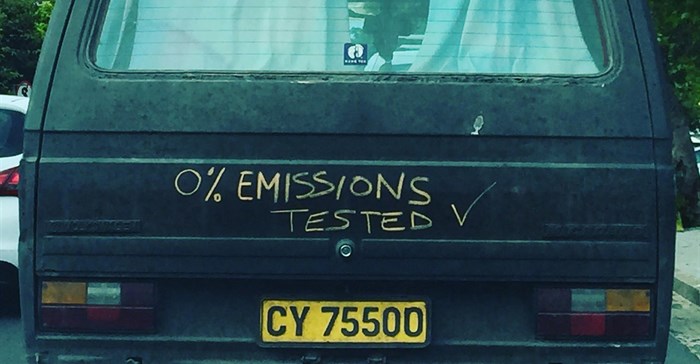[Communications] Crisis management in times of scandal
 How does a global brand bounce back from a global crisis such as the VW emissions scandal?
How does a global brand bounce back from a global crisis such as the VW emissions scandal?
Hills: As we all well know, a reputation takes years to build up and even more years and lots of deep pockets to come back from a global scandal. Sadly, it will cost even more when a company has broken its trust with its stakeholders and deceit has been the core mistake. It is going to be vital moving forward that the company link their KPIs, bonuses, promotions to the building of the reputation of the organisation. VW has certainly built up an excellent reputation over the years, which will stand it in good stead because the scandal will draw off the bank of goodwill that has already been created.
 What do they need to do first? Has VW done enough?
What do they need to do first? Has VW done enough?
Hills: Admitting that they were wrong was certainly a good move. Also confirming that part of the plan moving forward is to ensure that no lies would ever be repeated again.
![[Communications] Crisis management in times of scandal](https://biz-file.com/c/1510/317710.jpg)
But it is always disturbing that the people that feel the pain at the loss of the reputation of the organisation is the man at the end of food chain and when we hear of a warning of large numbers of retrenchments and job losses, it highlights a question as far as leadership. And have leadership and top management truly taken responsibility for their actions?
 How do you restore brand reputation in the short term; and in the long term?
How do you restore brand reputation in the short term; and in the long term?
Hills: The paying of the fines will undoubtedly hurt the organisation, but the loss of jobs to the employees will hurt countries and families who have been loyal to the brand for many years. So the short term improvement of the reputation would be to be seen in the market place proactively, communicate at all levels of stakeholders through all the countries that VW operates in.
Public relations play a major role. Highlighting the messages of commitment, governance, and integrity and never to be repeated. Maintain high staff morale and over the long term, reassure purchases of each product that no short cuts have been taken. Reassure existing VW car owners that their vehicles are of value, quality and that VW is prepared to stand by its promises.
 How would a business restore trust after admitting wrong doing after being caught out?
How would a business restore trust after admitting wrong doing after being caught out?
Hills: Trust is earned over a period of time and takes a long time to restore once broken, if ever. It is no different from a relationship at home where communication is crucial, transparent and sincere.
 How do they manage investor confidence, restore their internal branding among their employees and dealer principles around the world, and most importantly, consumer confidence?
How do they manage investor confidence, restore their internal branding among their employees and dealer principles around the world, and most importantly, consumer confidence?
Hills: Managing of the investors will need to be transparent and regular as possible, taking people through their reputation management plan, showcasing the risks and reinvesting confidence in the investors. Re-investing confidence in the German people, that have been so proud of their brand. So, internal ambassadorship and driving the internal message of the VW way to employees, dealers and principles around the world will be a journey over time and will need to be repeated consistently, for the forth coming five years at least.

Sadly the damage is so extensive given what VW has done, it will undoubtedly make it to the leadership manuals, the brand case studies and some of the greatest cons in our business times today. So it will create a legacy of how not to do business which will take time to undo.
 How do you advise your clients to maintain their reputation, apart from always being honest with customers, investors and their employees?
How do you advise your clients to maintain their reputation, apart from always being honest with customers, investors and their employees?
Hills: Building a reputation is a journey of leadership, identifying risks throughout the business, managing those risks, pre-empting those risks, with plans in place to prevent those situations that get out of control. Identify your messages, who are going to say what and when.
Our leaders today have such an important role of leading with head and heart, which impacts on the profit of an organisation, that we have to consistently be honest and transparent with our communication, both internally and externally at all times.




























